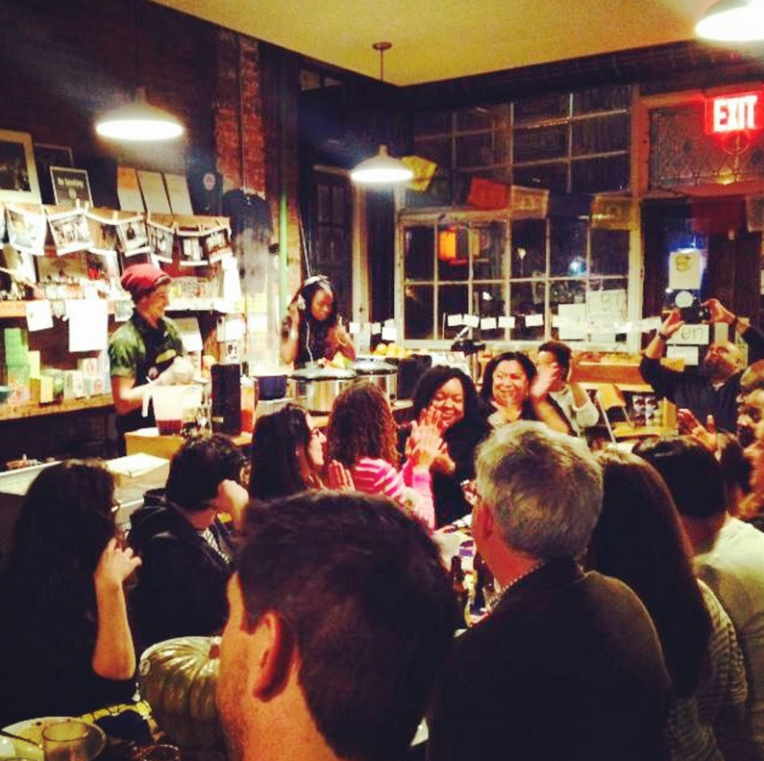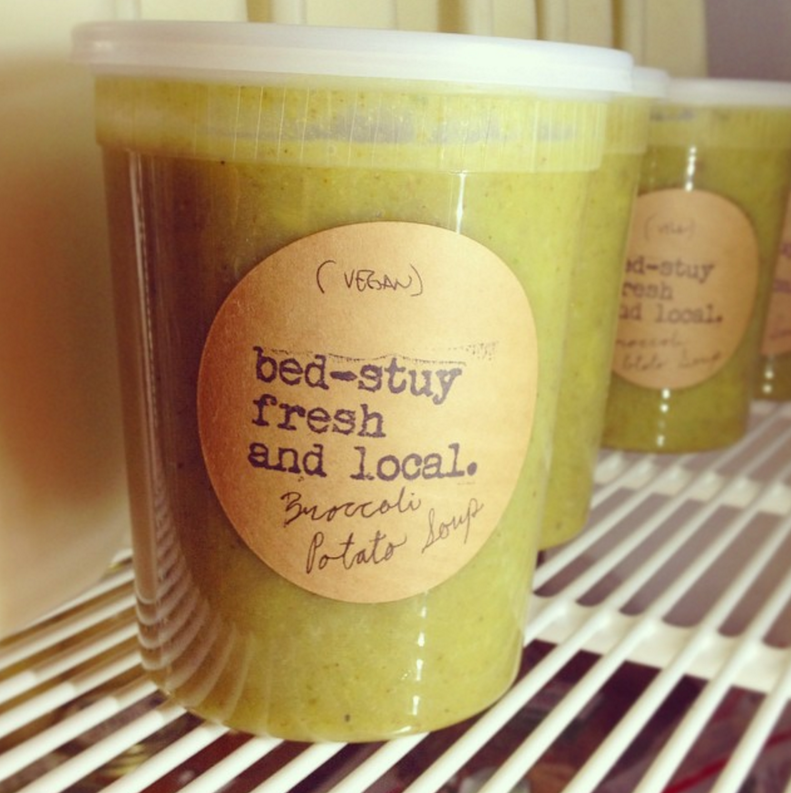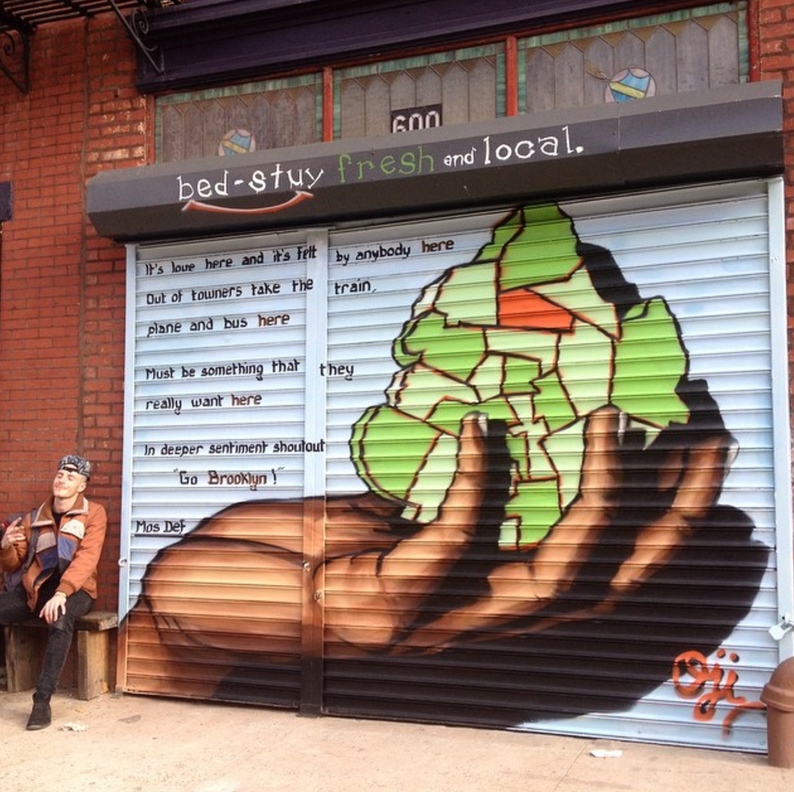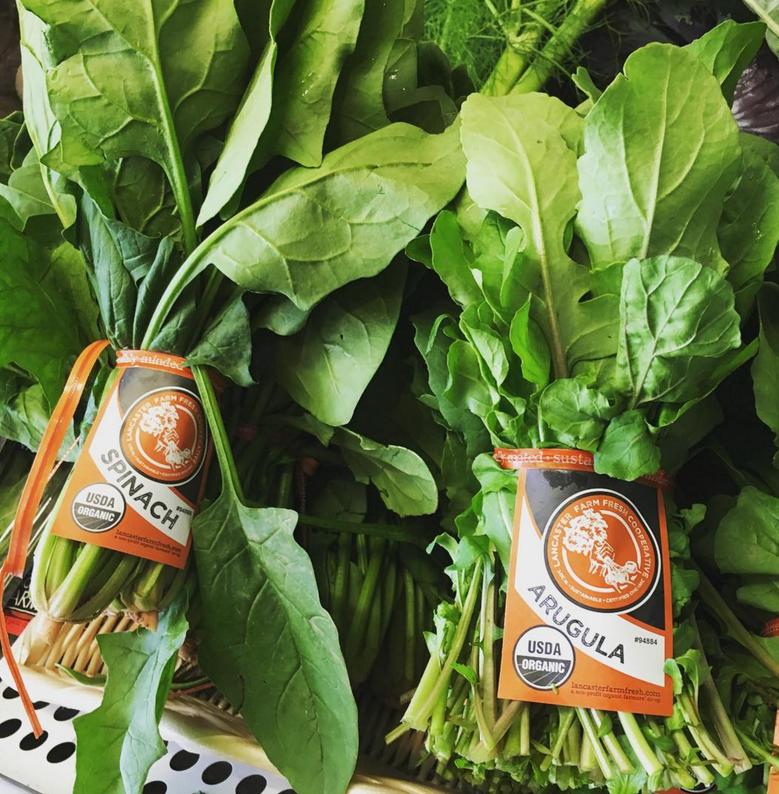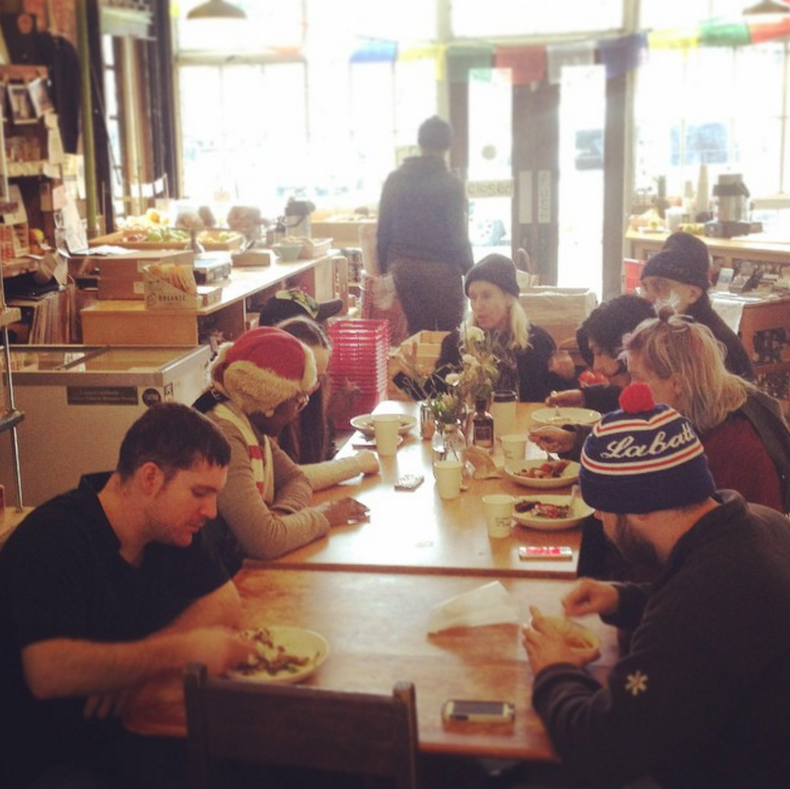The Regenerative Qualities of Bed-Stuy Fresh & Local
The Regenerative Qualities of Bed-Stuy Fresh & Local
This piece originally appeared in Capital Institute's Field Guide to Investing in a Regenerative Economy.
-----
Sheila Akbar and Dylan Ricards opened the doors of Bed-Stuy Fresh & Local in December 2013 with an abundance of passion but no experience in the grocery business, responding to a need they perceived for fresh, healthy, and affordable food in their neighborhood. Unlike the kind of mini-Whole-Foods clone you see in many gentrifying neighborhoods of New York City, what Sheila and Dylan have created in the past three years goes far beyond bringing fresh produce to the corner of Patchen Avenue and Macon Street. That’s because Bed-Stuy Fresh & Local was conceived, with great intentionality, as an inclusive community anchor that supports the local food system and where newcomers and long-time residents feel welcome in a rapidly gentrifying corner of North-Central Brooklyn. “Customers have a sense of home, not just a shopping experience, when they come here,” says Jules Cunningham, an employee. Fresh & Local will soon be, with equally deliberate intention, something even greater than a community-gathering place. The store will soon convert to cooperative-ownership, enabling wealth to be shared more equitably with the store’s new worker-owners, and, in time, to be more effectively captured and circulated locally.
Becoming a cooperatively owned enterprise rather than a traditional, privately owned one was something Sheila and Dylan had contemplated for their new generation mom and pop grocery when it was initially launched. However, they quickly ran into the usual startup financing obstacles. “No bank would fund us even though we had perfect credit and a good business plan,” Sheila reports, “They were uncomfortable lending into gentrifying areas, let alone to a cooperative.” The two ended up raising the needed funds through an Indiegogo campaign, from friends and family, and by assuming personal debt.
But their dream of cooperative ownership for the store was rekindled last year when they began attending a free, 12-week cooperative-ownership workshop co-sponsored by The Working World and The Northeast Brooklyn Housing Development Corporation. They eagerly shared what they were learning with two of their employees: Jules, who had previous experience as a cafe owner, and Christina Thomas, who had started out as an intern through a not-for-profit youth employment organization called Exalt.
The Collaboration with Working World
In August 2015 Working World extended a $60,000 loan to refinance the store’s startup debt. “It is basically a profit-sharing agreement we have with Working World,” Sheila explains. “On a monthly basis we pay them some percent of profits after expenses. We feel like they are our partners as opposed to our lender.”
Over these past nine months, Working World staff has visited the store on an almost weekly basis to meet with Sheila, Dylan, Jules, and Christina. They are reviewing the store’s finances and guiding the soon-to-be cooperative owners through the conversion process. Working World has also offered other advisory support. “We have run into crisis points where we feel our customer base is dropping off,” Sheila reports, “and they get into the trenches with us to fix the problem. They bring their own business knowledge and connect us with other people in similar businesses. They have offered us moral support in so many ways.”
Working World will extend additional financing once the cooperative is a legal entity to enable Jules and Christina to finance their share purchases. The debt will be structured to allow the new co-owners to pay it down over time from their profits in the business.
Sheila and Dylan had never been comfortable with a hierarchical employee/employer relationship and consequently they anticipate the transition to a cooperative model will be a smooth one. “Jules and Christina have both been with us for two years and it is really exciting to be offering worker ownership to them,” Sheila reports.
Bed-Stuy Fresh & Local is now doing all it can to support a worker-owner-cooperative culture in Brooklyn and the surrounding boroughs of New York City.
Sheila now serves on the board of the New York City Network of Worker Cooperatives and Dylan is a member of the Bed-Stuy Cooperative Steering Committee. A Bed-Stuy exterminator service, an organics packaging facility, and a child-care center are all in early stages of cooperative conversion through the support of this network and through funding from a cooperative initiative of the New York City Council.
Extending a Welcome to Everyone in a Gentrifying Neighborhood
|
Creating an inclusive atmosphere for the store was something that Sheila and Dylan thought a lot about from the very beginning. Sheila notes: “We wanted to be sure we weren’t being seen as excluding anyone or serving only the new population.” Indeed many of the new businesses in Bed-Stuy are relatively high-priced bars and restaurants clearly catering to the hipster population or affluent young families who have recently moved to the neighborhood and are renovating brownstones. Bed-Stuy Fresh & Local is an enrolled participant in the Supplemental Assistance Nutrition Program for low-income individuals and households. And to keep prices affordable, the store adds a standard margin—roughly 33 percent—on its products, even though many stores selling the same products add more than that. “It’s been tough,” Sheila admits, “but we try to look for efficiencies wherever possible so that our overhead is as low as possible.” Fresh & Local is very much a neighborhood store, with patrons coming from only a four or five block radius. It periodically holds a “supper club” featuring local chefs and food producers. “We have made great friends with people living here 20 years or more, as well as with newcomers,” Sheila reports, “It is a great thing to see neighbors talking to each other in the store. It feels like we are participating in a real community.” Sheila admits that gentrification is hard to arrest as affordable housing becomes scarcer in Brooklyn, but she feels Bed-Stuy Fresh & Local is doing its small part to address it by becoming a worker-owned coop.
|
|


